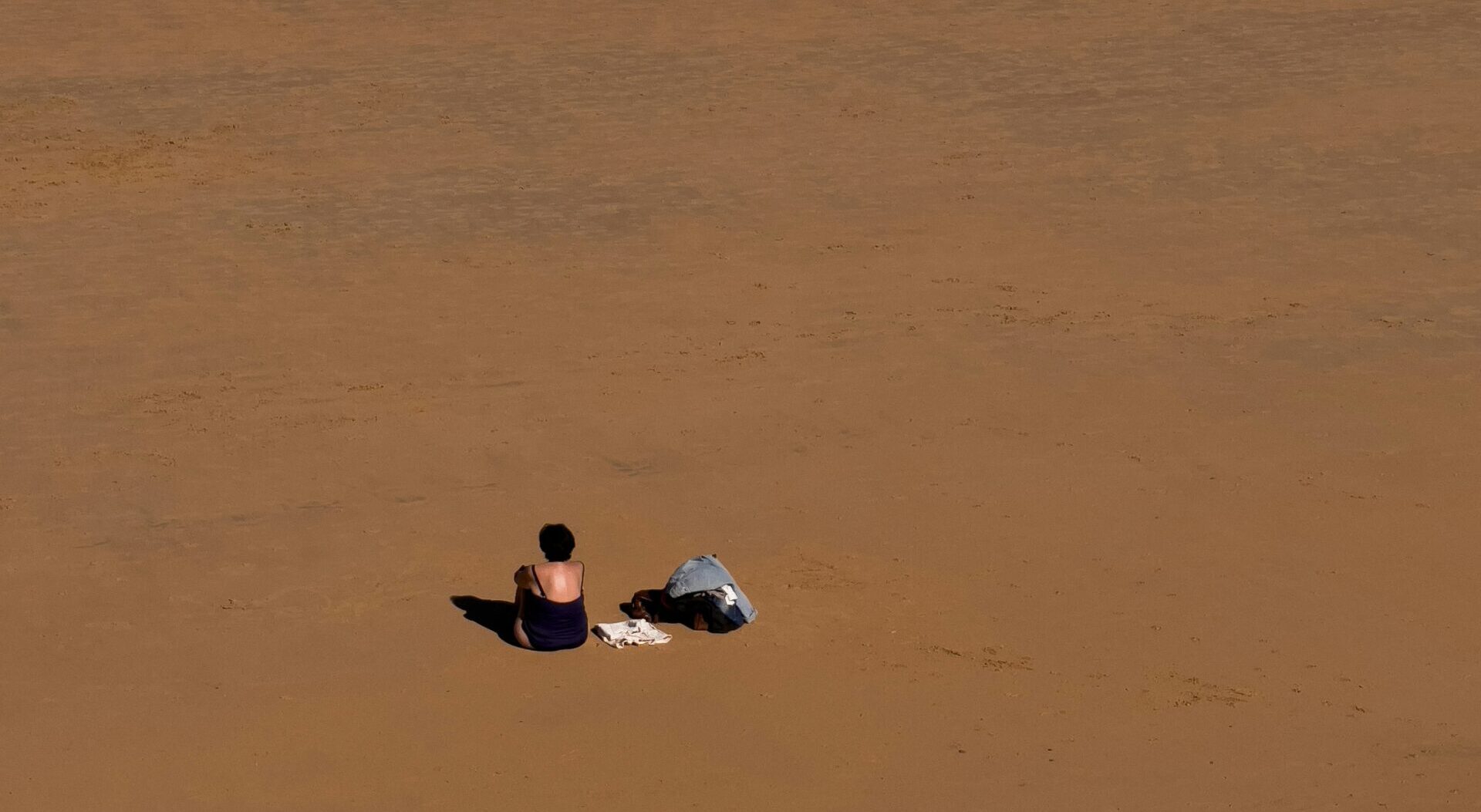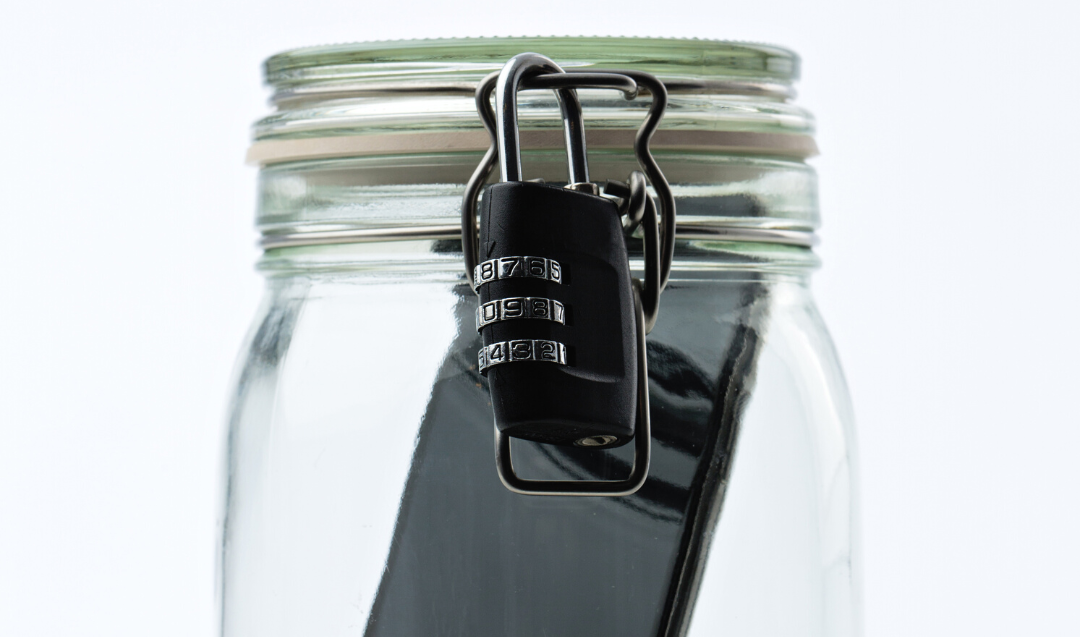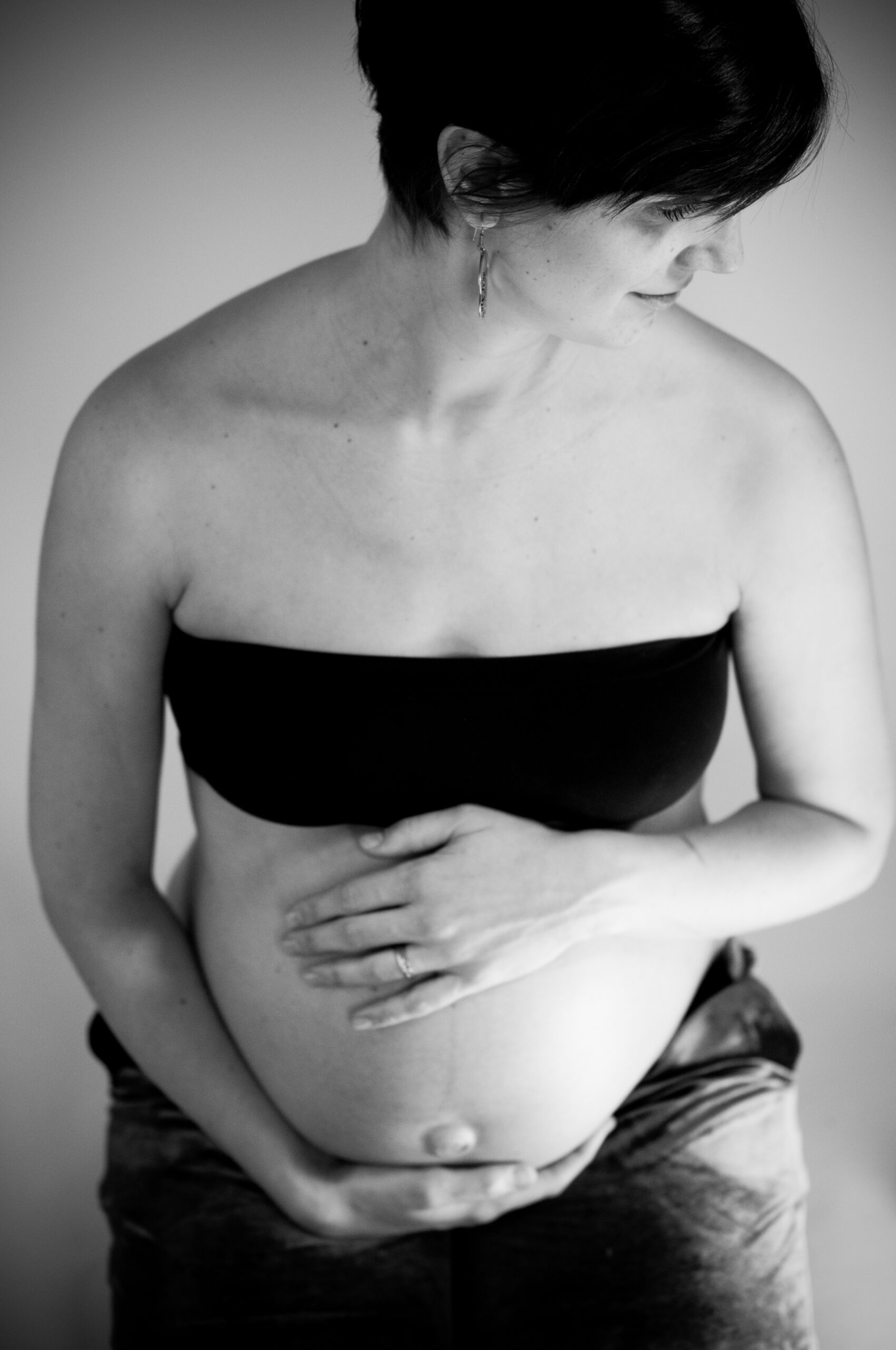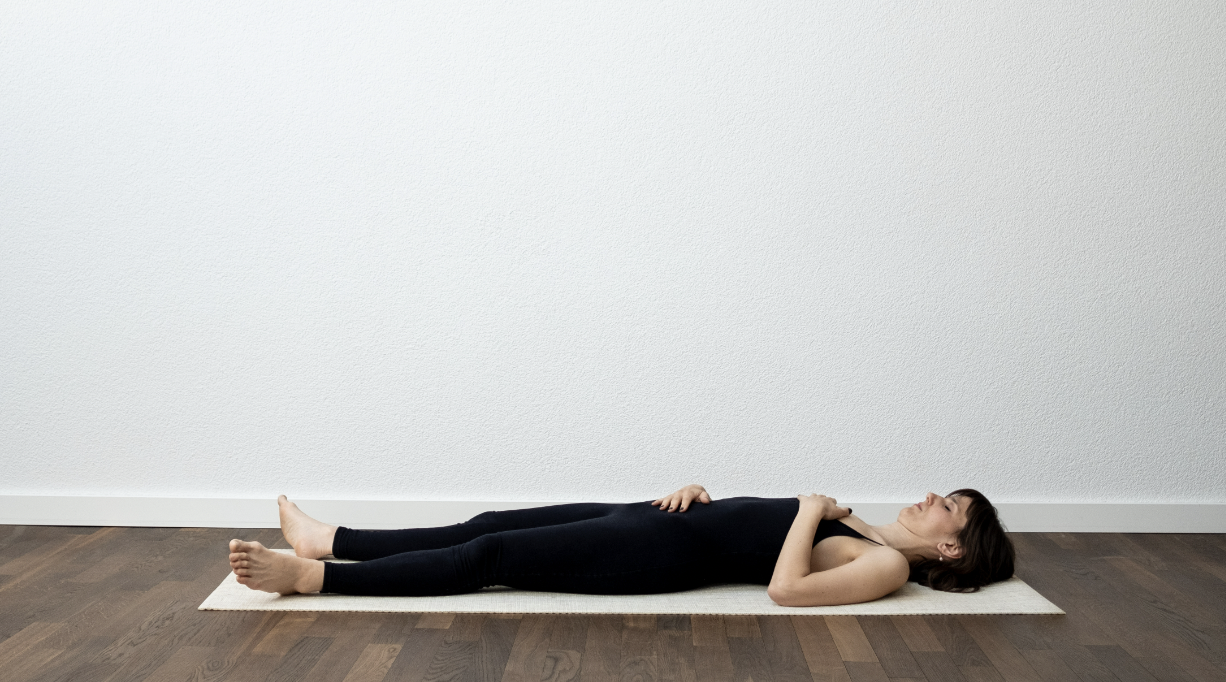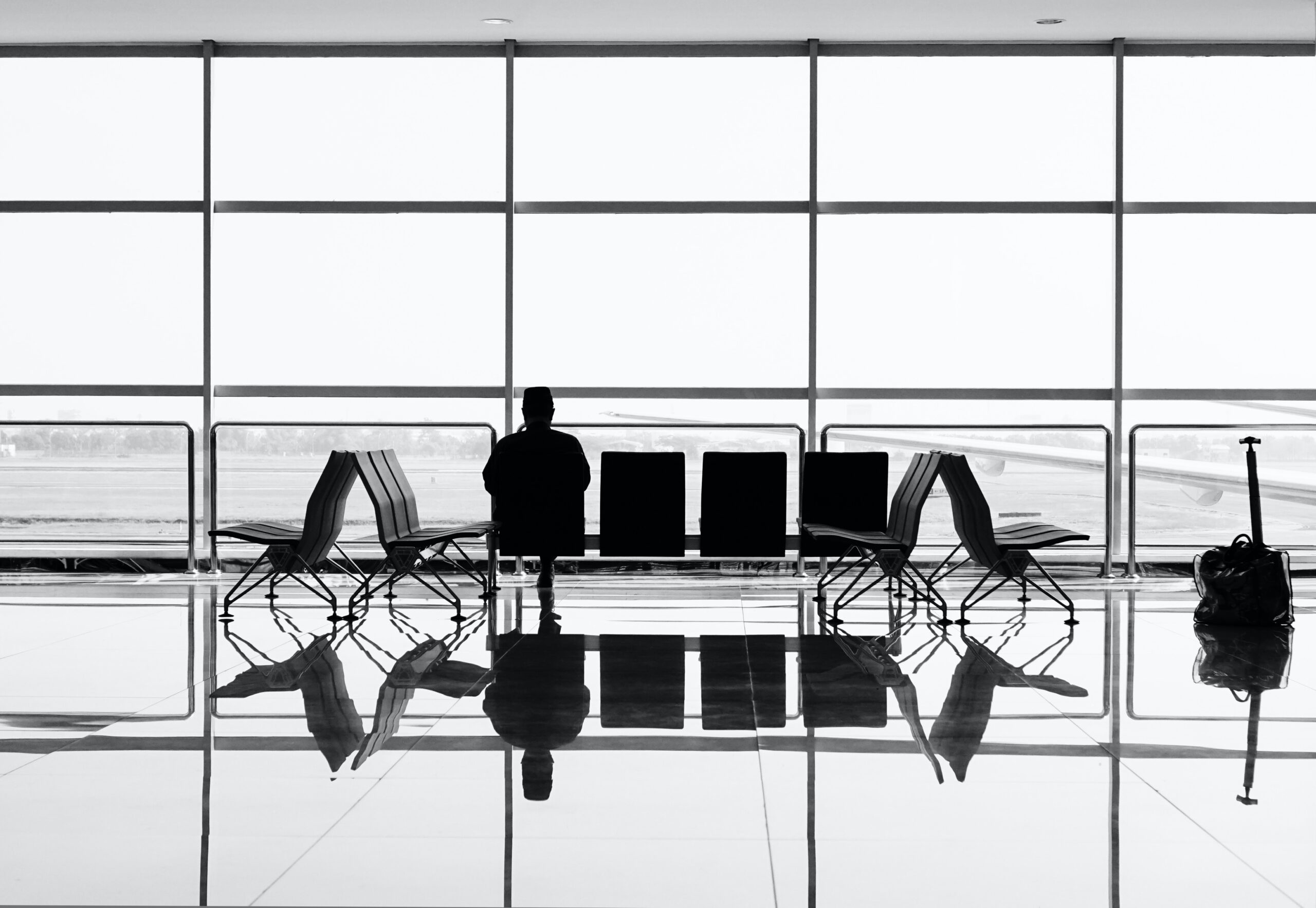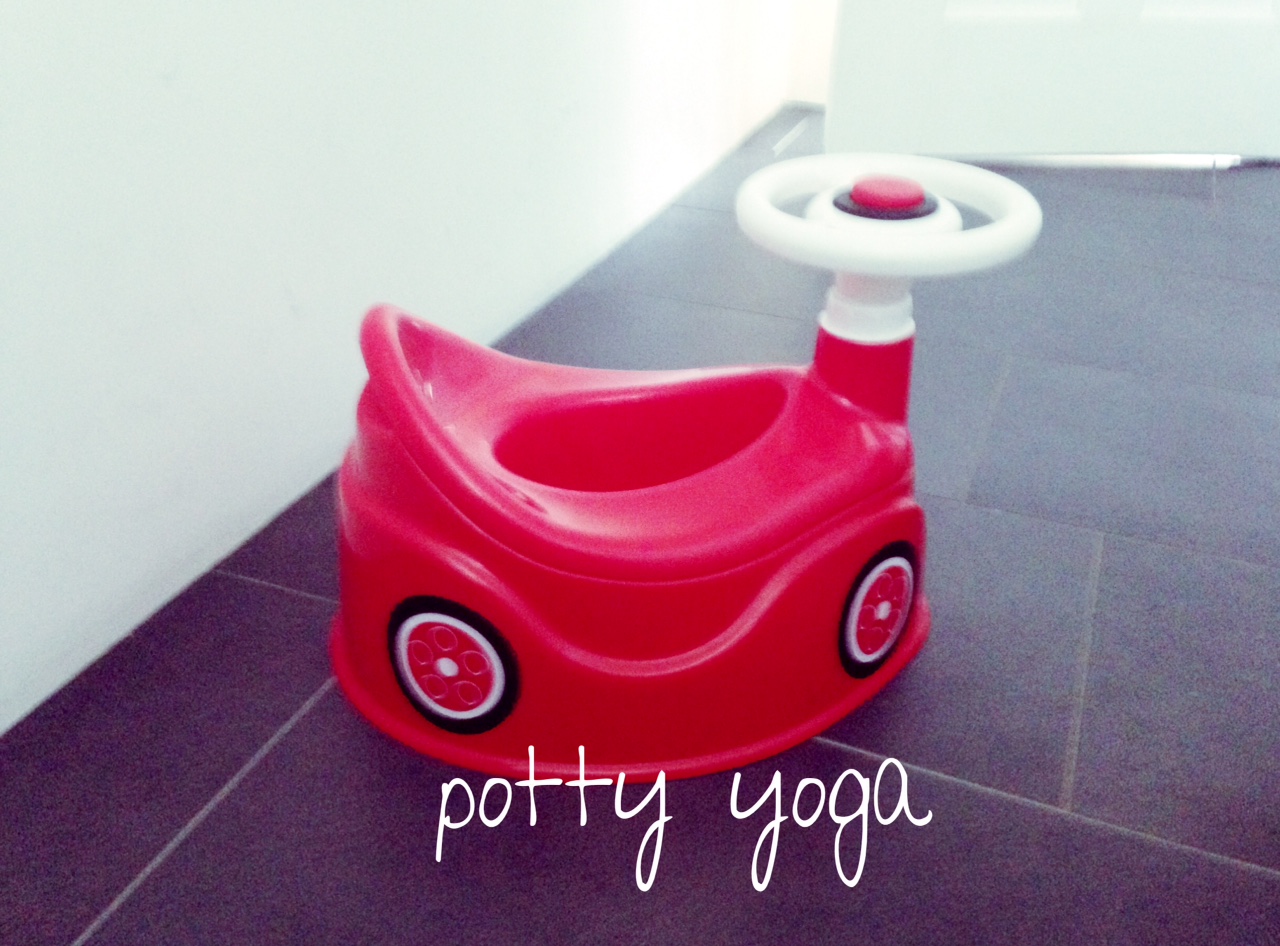In welcher Sprache erkenne ich mich wieder? Bei SRF Input wurde ich zum Thema Mehrsprachigkeit interviewt. Und realisierte: Mehrere Sprachen bilden meine Identität. Das erschwert mein Gefühl von Zugehörigkeit.
Erst eine Woche ohne Smartphone zeigte: Ich bin süchtig nach meinem Handy, nach dem Dopaminkick und den Mikrounterbrechungen. Und jetzt?
Eine Woche ohne Smartphone
Als ein Journalist im Freundeskreis rumfragte, ob jemand für eine Reportage eine Woche lang aufs Smartphone verzichten würde, war ich sofort dabei. Dass ich oft am Handy war, wenn meine Kinder mir dringend etwas erzählen wollten, nervte mich schon lange. Ich hatte mir auch gerade das Buch «Verbunden» von Anna Miller besorgt. Das Timing schien perfekt und ich überreif.
Im Vorgespräch bemerkte Michael Feller von der Berner Zeitung, ich hätte doch schon eine gute Handy-Hygiene. Seit Jahren schaue ich morgens erst nach einer Stunde Morning Routine erstmals aufs Smartphone. Ich habe längst alle digitalen Geräte aus dem Schlafzimmer verbannt. Trotzdem bin ich durch meine Selbständigkeit viele Stunden allein und habe wenig Austausch. Das Smartphone ist meine Verbindung zur Aussenwelt und oft willkommene Ablenkung, wenn ich mir vorgenommen habe, fokussiert zu arbeiten.
Die Redaktion stellte mir für die Digital-Detox-Woche ein Dumbphone zur Verfügung, damit ich von unterwegs telefonisch und via old-school SMS erreichbar sein konnte. Ich handelte mir aus, dass ich vom Laptop aus, Whatsapp- und Signal-Nachrichten beantworten durfte, da ein Grossteil meiner beruflichen Kommunikation über diese Kanäle auf dem Smartphone läuft.
Kurs vor Start fühlte ich mich wie vor einer Fastenkur oder einem Schweigeretreat: leicht panisch!
Fast bereute ich meine Zusage. Völlig irrational ahnte ich Katastrophen voraus: Was wenn mir etwas durch die Lappen ging? Was wenn mich jemand suchte und mich nicht erreichen konnte oder schlimmer, vor verschlossener Türe stand?
Gleichzeitig kamen mir meine Sorgen absurd vor, denn ich würde ja weiterhin erreichbar sein. Einfach nicht ständig.
Ausgebremst
Meine Detox startete an einem Samstag. Ich schrubbte Küche und Bad und mir fiel auf, dass ich es diesmal nicht eilig hatte. Ich ging auch nicht immer wieder zum Regal, wo mein Smartphone üblicherweise liegt und wo ich kurz mit dem Putzhandschuh aufs Display tippe und Nachrichten checke.
Das Experiment hatte kaum begonnen und schon machte sich ein anderes Zeitgefühl in mir breit.
Ohne die vielen Mikrounterbrechungen durch Messages und ohne Sehnsucht nach dem nächsten Social-Media-Dopamin-Kick fühlte ich mich entschleunigt und angenehm ineffizient.
Mir fiel auf, wie viel entspannter ich war, wenn ich Nachrichten und Mails gebündelt vom Laptop aus beantwortete. Ganz automatisch richteten sich bestimmte Zeitslots ein, während denen ich sozusagen die Korrespondenz erledigte. Wenn ich unterwegs war, gab es ohne Smartphone nichts zu tippseln.
Ich hatte immer gedacht, es sei so effizient, Dinge sofort zu erledigen. Aber – wenn ich dieses Bild von Anna Miller ausleihen darf – das ist so, als würden wir jedes Mal einen Waschgang starten, wenn eine dreckige Socke in den Wäschekorb fällt. Je früher man antwortet, desto schneller kommt auch eine Nachricht zurück, die wieder abgearbeitet werden will. Ein Teufelskreis.
Einfach warten
Am Montag, als ich die Kleine vom Kindergarten abholte, wartete ich zum ersten Mal seit Jahren, ohne mein Smartphone zu zücken. Für einen Augenblick kam wieder Panik auf. Doch dann liess ich meinen Blick über die Baumkronen zum Himmel schweifen, sog die Weite in mir auf. Laut dieser SRF Input Sendung sind solche Pausen für das Gehirn besonders erholsam. Auch wenn ich zu Fuss oder mit der Tram unterwegs war, gab es kein Hintergrundrauschen durch einen Podcast, kein Sprachnachrichten-Abhören. Ich beobachtete und erlebte meine Umwelt.
Während mein Sohn Hausaufgaben machte, setzte ich mich neben ihn und las in einem Magazin, ohne ständig aufzuspringen, um aufs Smartphone zu schauen. Ich ging im Wald spazieren und hörte das Vogelgezwitscher, weil ich keine Kopfhörer aufhatte.
Nicht ausgebrannt, nur abgelenkt
Die letzten Monate fühlte ich mich wenig kreativ und fand keine Befriedigung beim Unterrichten – ein Gefühl, das ich in meinen fünfzehn Jahren als Yogalehrerin nie gehabt hatte. Mir schienen die Ideen auszugehen und ich musste mir die Klassen aus den Fingern saugen.
War ich einfach ausgebrannt? Oder war ich mittlerweile zu routiniert, so dass ich mich langweilte?
Die erste Yogastunde ohne mein Smartphone war eine Offenbarung! Auch meine Yoga-Musik spiele ich via Smartphone-App ab. Seit Apple Music auf Abosystem umgestellt hat, habe ich im Flugmodus keinen Zugang mehr zu meiner Musikbibliothek. Ich schalte deshalb nur auf «Do not disturb.» Das klingt nach keinem grossen Unterschied, aber psychologisch ist er gross: Beschämt muss ich gestehen, dass ich während der Schlussentspannung auch schon Nachrichten gelesen habe.
Vielleicht denkst du: Ist doch kein Drama.
Aber erst als ich nach Langem wieder ohne Smartphone unterrichtete, war ich fokussiert, hatte eine Idee nach der anderen und die Zeit verging im Flug.
Meine Hauptdroge war nicht im Raum. Ich war nicht abgelenkt und ganz bei der Sache. Wir kennen alle die Befriedigung, die der Flowzustand bringt. Wir sehnen uns danach, vertreiben sie aber paradoxerweise ständig mit unseren Smartphones, mit den unzähligen Entsperrungen und Mikrounterbrechungen.
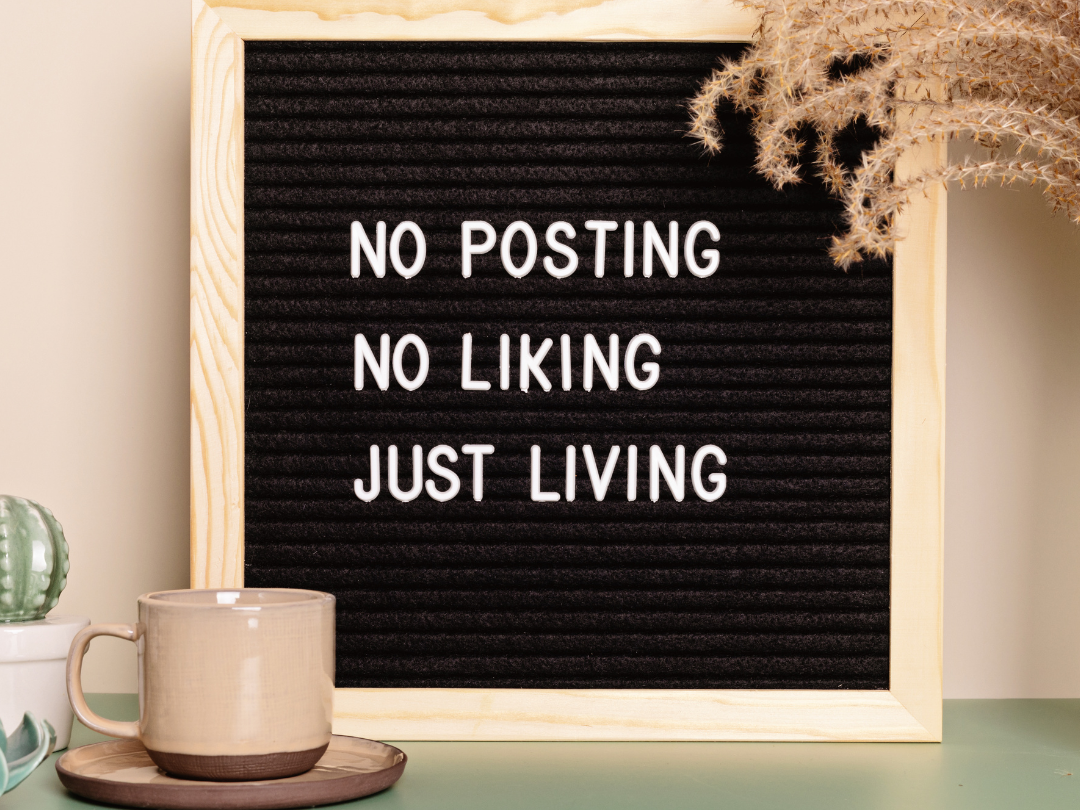
Immer mal wieder fasten
Natürlich gab es Momente, wo ich ohne Smartphone auflief. Ich hatte meine Agenda nicht zur Hand, konnte mein Ebanking nicht nutzen und keine Fotos machen. Tram- und Bustickets musste ich am Automaten lösen. Morgens fragte ich meinen Mann, ob er für mich die Wetter-App checken könne. Aber ich wusste, es war nur vorübergehend.
Ich will das Smartphone nicht verteufeln und schätze weiterhin die Abläufe, die es im Alltag erleichtert. Ohne Google-Maps wäre ich oft aufgeschmissen.
Trotzdem war meine Smartphone-Sucht ein blinder Fleck.
Mir war nicht bewusst, wie tief die Gewohnheit von nur mal kurz Nachschauen und doch Hängenbleiben schon eingeschliffen war.
Ich nehme viel mit aus dieser Digital-Detox, gerade für fokussierteres Arbeiten und fürs Präsentsein im Familienleben. Vielleicht mache ich das jetzt alle paar Monate.
Wir sind umgezogen und angekommen. Bis auf ein paar Lampen und Bilder hat alles seinen Platz gefunden. Manchmal kann ich kaum glauben, dass dieses Licht durchströmte, neue Zuhause für uns ist. Und doch fühlt es sich schon sehr wie Daheim an, jetzt wo es von unseren Sachen besiedelt ist.
Schwangerschaftswoche 34, ein Gespräch mit meiner Hebamme. Eine alte Sorge von mir, dass meine Beckenboden-Muskulatur vom vielen Yoga zu straff sein könnte. Immer wieder hört frau, eine Geburt bedeutet Loslassen, Weichwerden auf allen Ebenen, sich Öffnen wie eine Lotusblüte.
Bei dieser Rhetorik bin ich hin- und hergerissen. Ich gebe gerne zu, dass es mir nicht immer leicht fällt, den Schutzschild abzulegen und weich zu werden. Das überrascht nicht. Der Druck weiterhin zu funktionieren, kommt wohl bei uns allen von Aussen wie auch von Innen. Kann es sein, dass deshalb in den meisten Schwangerschaftsyoga-Klassen das Loslassen und Weichspülen im Vordergrund steht?
Selling bliss has become a profitable line of business. A lot of yoga teachers make a living like that: “Come to yoga and feel the bliss of inhabiting your body, of being totally relaxed, of feeling more lithe and bendy, feel how everything looks, feels and tastes better!” And these are just a few of the marketing slogans.
Midwives, doulas, everyone who works with pregnant women will tell you that two weeks before the baby is due you should start your maternity leave. Cancel all your appointments, stop working, stop making plans. Make space. This includes space to connect with the little one and making space for it to come through you and into this world. The belief is that if your mental and physical space is too cluttered, the baby won't come. Or the birth will be rocky. Or you won't feel ready.
All the way to the gate I cried. In the middle of the homeland security madness, someone had stopped to think about motherhood. Someone had taken a moment and had seen behind the passport number.
A kindness shown in a place that usually has no room for soft spots. I think I have never seen that happen before.
The only child
I'm an only child. About four months from now, my only child will no longer be one. Sometimes I think I was open to having a second child for the wrong reason. I was afraid my son would feel as lonely as I often have in a silent house, with “only” two adults around.
My parents were often home and there for me. I seldom felt abandoned. But adults don't make noise. With parents you don't learn how to be teased and not take it too personally. You don't learn rough-and-tumble play. You become an adult sooner than you'd like.
I didn't want that for my son.
Sitting alone
A few weeks ago I was in Düsseldorf for a yin teacher training. When I arrived the airbnb apartment wasn't quite ready so I headed out again to find some food. I was waiting for my takeout dinner at one of the outdoor tables of the Vietnamese restaurant around the corner, when I became painfully aware that I was the only one sitting alone.
I don't know many people who like sitting alone at a restaurant. For some reason dining alone is a situation we want to avoid. It seems to be the prime stigma of loneliness, indicating your inability to surround yourself with people. As if this was clearly a deficit.
So what do we do, when we are forced to sit alone? We pull out our phone, our laptop or the paper and assume an air of consumed busyness and concentration. For me, I want to avoid the fear and guilt I associate with feeling left out. That first night in Düsseldorf, with no wifi and no book on me, I had to face the demons.
The stigma of the outsider
One of my personal demons, I think, is the stigma of the only child. The one who is always slightly precocious because she spent most of her formative years around adults. The one who doesn't know how to behave around people her own age because she had no siblings to practice bickering and pranking with. So she ended up not fitting in as a teenager. For years, she entered every social situation watching closely and trying to pick up cues for how to behave.
I remember feeling ashamed for being an outsider. Maybe that's not even how it was. But most of the time that's how I felt. The situation of sitting alone at a restaurant stirs up these old emotions from the inner child, even at age thirty-five.
Sitting around a table is the way most families come together, hopefully at least once a day. When we sit at a table alone, while others are enjoying company, we feel left out. It triggers the natural child-like fear of being alone. As a child, avoiding abandonment is crucial for survival. In the early years of our life, we couldn't thrive without our parents' care. And it's a good thing that this information has been embedded in our DNA.
The desire to feel included
Only child or not, we're all afraid of being alone. And yet, it is such a crucial human experience to eventually face the fear. Allowing the demons to rise also gives us the opportunity to name this fear for what it is: the desire to feel included and loved.
I'm all grown up known. A pregnant woman of thirty-five. And I still feel like twelve when I'm sitting alone without my armor of book and smart phone.
The only difference is that today I'm aware of our deep-seated human fears and longings. I try to activate my inner parent and tell the inner child that this is just my need to feel included popping up again. Nothing to be ashamed of, but also not a need that can always be met.
Our own resource for love
Nor should it always be met. If we were always engaged socially, would we ever have time to make observations such as this one? Would we ever become self-sufficient adults? Would we ever learn to be our own resource for love and support without relying solely on others for that? I think that's what growing up actually means. Becoming the inner parent to the inner child.
If all else fails I remind myself that – only child or not – the need to feel accepted and involved is one that all human beings share. Know that, with that wish, you are never alone.
Teaching yoga and selling honesty
Six months ago, I began writing a book about yoga, addiction and recovery. Since then I have been interviewing people in the international yoga world on the subject. I was thrilled when celebrity yoga teacher, author, meditation teacher and former tobacco and marijuana addict Francesca* agreed to answer some questions from me by email.
*not her real name
Francesca attributes her sobriety to the power of mindfulness and the process of becoming aware of one's own psychological make up. (The term sobriety originally denotes abstinence from alcohol, but is now loosely used to describe the recovery from substance abuse in general). Today, Francesca champions the self-healing effect yoga can have, which makes her a perfect fit for my book.
In recent years Francesca has given several interviews about her recovery from tobacco and marijuana addiction. But when I send my questions to her she tells me she can only answer four of them as she is extremely busy. She makes it clear that she wants final say on what will be printed. I feel like my hands are tied before I have even written the first line.
From yoga teacher to modern heroine
Francesca started out as a yoga teacher in the late nineties when, according to her, there were only three major studios in New York. (I assume she means only three with a strong reputation). Later on she co-owned a big studio in Manhattan for twelve years.
Over the last few years she has made a transition that most New York based yoga teachers would die for. Now she is and does so many things that I have trouble wrapping my head around them. She is a producer for an online meditation platform, business owner, mentor, online teacher and public speaker, as well as being a mother and an author.
Francesca is artistic, eloquent and graceful. It seems like there is nothing she can't do. She's a modern heroine. As I watch her videos and listen to her talks, I am struck by her perceptiveness and honesty. Her way of sharing is personal. She speaks like she's one of us.
Her answers to my questions have a different ring to them. She is concise and no fuss. But I get the feeling of being held at arm's length. And I wonder why.
Reconciling mindfulness and escape
When she became a yoga teacher, Francesca had already been smoking marijuana and tobacco for years. She says she used to smoke to escape, to hide, to celebrate, to be sad, to handle hard moments. It was, like so many addictions are, an attempt to run away. But Francesca was lucky enough to be surrounded by friends who, as she puts it, are leaders in the sober world.
At some point one of her mentors told Francesca she couldn't serve “God” if she was getting high every day. One day later she quit.
I cannot help being surprised that these two contradictory lives – the one of the yoga teacher and of the secret smoker – could co-exist for so long. What did it feel like to encourage clarity and self-awareness in her students while not telling the whole truth about herself?
Talking about recovery
Unlike other yoga leaders who have been in the media for this or that scandal, Francesca has been open in talking about her former addiction and the process of recovery. I wonder how she found the courage to go public with her story. Or was it a calculated move?
According to Francesca, discussing her own addiction story publicly has helped hundreds of people become clean. I don't doubt they feel empowered by her story. It's comforting to know that, whatever the issue at hand, we are not alone. Yes, Francesca has struggled with addiction, but she floated out on top. She found a way to turn her redemption into a engaging characteristic.
What is real?
If I compare Francesca's answers to my questions to her other interviews, I can't help but feel that they sound rehearsed. It feels to me like there is an image to be preserved and a story to protect. Which makes me ask the question: What is real about Francesca, her addiction and her story?
Francesca was one of the stars in a North American yoga community that emerged in the late nineties. Around fifteen years later the unethical behavior of its founder was exposed and the community started to decompose overnight. Francesca was one of the first to resign her teaching certification. At the time, she claimed she had been planning to leave and pursue her own path for a long time.
Ever since then Francesca has kept her record clean, even after admitting to her former addiction. However, I have an inkling that a lot of thought and effort goes into watching over how she is perceived. And that started me thinking.
Am I selling honesty?
Yoga helps us arrive at honesty by becoming still and observant. One of the big questions yoga asks is: Can we be honest with ourselves and still embrace the parts of us that we are not proud of? To me, that is the essence of spiritual, or just human, maturity.
At the same time we want to please, to shine, to be seen and appreciated. We have the impulse to cover up the ugly parts of us. Also, I'm sad to say, it has become essential for any yoga teacher to build some sort of public persona to make a living.
As I write this I am spending a week in Andalucia, teaching a yoga retreat. As I observe myself during the yoga sessions, I realize that it's almost impossible to teach without slipping into a role. I think about Francesca and my own work as a yoga teacher and I find myself considering whether even talking openly about our shortcomings has become a sales strategy for yoga teachers. Isn't that how we make people feel at ease and okay with who they are? And isn't that part of what makes them come back for more?
You must be enlightened
Yoga teachers are in a tricky position. We are expected to teach by example. So we feel compelled to understand our own psyche and acknowledge our imperfections. At the same time, there's the undeniable pressure to present ourselves as the one who is already there, already enlightened. We think that to be seen as a leader we need to be flawless.
About five years ago I gained a lot of weight. I felt so ashamed. I was sure people would think: “That's not what a real yoga teacher is supposed to look like.” I finally lost the weight when I became a mother and the world stopped revolving around me, myself and I.

Why do we think taking the seat of the teacher means climbing on a pedestal? Because to some extent it's true. We do need to appear to be leaders to inspire. Over dinner tonight my students here in Andalucia discussed how they would never go to a yoga teacher who doesn't have a more advanced practice than their own. I involuntarily found myself questioning whether my practice is actually “better” than theirs.
This desire to be honest while also projecting a yoga teacher my students can trust creates an inner tension in me. In the yoga world and when more is at stake, the consequences can be terrible.
It breaks my heart to see how many internationally renowned yoga and meditation teachers have been hiding a secret. The recent death of Michael Stone, yoga and meditation teacher and author of eight brilliant books, such as “Awake in the world” and “Yoga for a world out of balance”, is one tragic example out of many.
All his life he had been suffering from bipolar disorder and only a handful of people knew. I think the most powerful thing he could have done for his community would have been to share that even he had a shadow. A recent article by his brother reveals that he was on the brink of revealing his condition. On top of all his suffering he chose to add the stress of hiding and living in fear of being found out. I can hardly imagine how desolate he must have felt.
I believe nothing gives us more credibility than being authentic and vulnerable but putting yourself out there takes courage.
My moral high horse
I have always been adamant that a true yogi shouldn't hide behind a facade. In my heart of hearts, I condemn people like Francesca who have sold their soul in order to appear on glossy magazine covers and be the talk of every Wanderlust yoga festival.
I've always thought that honesty should be rewarded. So deception should be punished right? All things being fair, how can someone who carefully choreographs their own appearance have so many followers? I have friends that I respect who consider Francesca their spiritual mentor. This perplexes me and leaves me with a sense of bitterness, and yes, maybe even envy.
From my moral high horse, I always felt that I have succeeded in being one hundred percent real. When I teach I try to sound like me. But yesterday, as I was listening to myself instructing pose after pose, I realized: It's not possible. I try to sound natural, but I still use a softer voice and more poetic language. I'm not being fake, but this is also not the way I talk to my friends over dinner.
The teacher's persona
All this time I have prided myself on my authenticity. But isn't presenting yourself as the real thing just another strategy in constructing an image as a yoga teacher? I have convinced myself that I am superior, but maybe I'm not. Perhaps none of us can completely help the impulse to control how we are perceived.
After the retreat, I asked a wise student of mine to share her view of the projected teacher's persona. She told me that as long as the yoga teacher isn't obviously putting on an act, the subtle role play makes her feel safe and guided. So perhaps the persona of the teacher is actually necessary for the transmission of knowledge.
I wonder if someone like Francesca has these thoughts too. I can't imagine that a yogi would go through life without questioning themselves time and again. There is only one thing that reassures me: The self-doubt I'm having is a sign that at least there is awareness. This is not so different from an addict shaking off the denial and recognizing his pattern of dependence. Outwardly nothing changes, but being conscious makes all the difference.
Rip off the bandaid
A little over a month ago we started potty training our son. A friend had just gone through the process with her slightly younger boy. She lent me a book by the (obviously American) expert potty trainer and author, Andrea Olson. It came highly recommended and was said to offer “non-coercive wisdom from first-hand experience teaching infant potty training for the past 5 years.”
My friend's words to me were: “It makes a lot of sense to me. When I quit smoking, I had to go cold turkey as well. It doesn't work if you gradually taper off to zero cigarettes. You just have to get it over with and rip off the bandaid.”
That's the strategy Andrea Olson promotes. Once you've taken the child out of his or her diapers, that option is no longer available (except maybe during the night). So one fine day, you tell your child that he or she is a big boy or girl now. Like all grown ups he or she will from now on sit on the potty to pee or poop, which you are to encourage playfully and cheerfully.
The potty journey
So the three of us embarked on the potty journey, excited that we would soon no longer have to change diapers several times a day. The book promises that every child older than eighteen month is ready to be potty trained. The statistics are indeed interesting: Until the fifties every child there were hardly any children still in diapers by the age of eighteen months. That's not surprising considering that was the era before washing machines and pampers, when you still had to boil and wash cloth diapers in your kitchen sink.
Andrea Olson guarantees that if you stick to the three-part plan – namely naked training at home first, then small outings with clothes, then normal life with clothes – the child will be fully potty trained in one month tops. Some children may even get the hang of it in a week or ten days.
So much for the pep talk.
Naked training was not a problem. We were spending a few days on a remote alp and mostly outdoors anyway. I have to admit that I was surprised how quickly my son understood that peepee was to go into the potty. But after more than a week, when we were already putting the naked training behind us, there was no progress with the poop. Every single time it went into his pants. Try washing poop out of toddler pants when your sense of smell is heightened due to prenatal hormones. A true test of a mother's love.
Like the book admonishes, we tried not to be annoyed or reprimand the child. But honestly, it's hard to keep your composure and compassion when dealing with a whole lot of shit. (Pardon my French).
Take the pressure off
After two weeks my husband and I were frustrated and somewhat clueless. I decided to call a friend who works as a parental advisor and has helped us out several times before. She listened to my detailed report and then said: “Why don't you just take the pressure off a bit?”
I felt a pang of guilt. My son is an extremely easy-going child. He rarely makes a fuss and adapts well in every situation. But if there's one thing he doesn't respond well to it's being forced to adapt too quickly. He needs time. Even when he arrived in this world, it took him a few weeks to find his bearings. He needed time to establish his sleeping and eating rhythms and settle in. After that, he was fine.
I knew he doesn't respond well to pressure. And after all, who can go when they're being rushed? Didn't Freud already connect the anal phase to the ability of letting go? I felt embarrassed that I hadn't thought of it.
So we eased up. We let him wear a diaper in the morning until he had done his number two. We asked him if he wanted the diaper whenever he felt the tummy ache that means he has to go. And within a few days, poop started going into the potty.
I think of all the yoga teachers I have met on my path who think that sometimes students need a little push. That may be true. It can be helpful to have your boundaries pushed a bit and try something new, like an arm balance or an inversion. However, I don't think that it works for every type of personality. Like my son, I don't like to be forced when I don't feel safe.
Is it possible to let go under pressure? I'm not sure. Sometimes we need to be eased in. Sometimes, all pressure does is achieve the opposite result.
There's no golden rule
Our culture teaches us that it's always advisable to rip off the bandaid. Quick and painless. But is it really? Is that strategy taking into account that we are not all made of the same stuff? Does that consider what we might be going through at any given time and that we all have a different history?
Or put in into the context of yoga class: Encouraging someone to overcome their fear of headstand by just doing it can be empowering for the student. But it can also cause them to be re-traumatized.
This is not the first time I liken being a mature adult to being a good parent (also to yourself). A good parent knows their child. They assess the situation and do what is called for and beneficial under the circumstances.
Unfortunately, this may mean that we can't rely on the same golden rule all the time. We have to stay awake and observant to gauge the right dosage. It has a lot to do with taking responsibility for ourselves, instead of applying what we heard is supposed to work. Ripping off the bandaid is not always the way to go.
I believe that yoga hands us all the tools to evaluate what the best treatment plan is. If we are willing to listen and respond appropriately, we may well discover that what was stuck will start to flow again.
© Copyrights 2022-2023 | Elisa Malinverni | All rights reserved | AGB| Kontakt & Newsletter
© Copyrights 2022-2023 | Elisa Malinverni | All rights reserved | AGB | Kontakt & Newsletter
© Copyrights 2022-2023 | Elisa Malinverni |
All rights reserved | AGB| Kontakt & Newsletter
© Copyrights 2022-2023 | Elisa Malinverni | All rights reserved | AGB | Kontakt & Newsletter
© Copyrights 2022-2023 | Elisa Malinverni
All rights reserved | AGB | Kontakt & Newsletter

